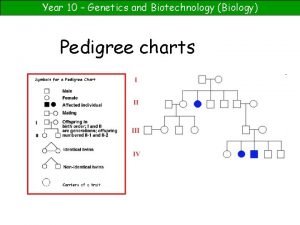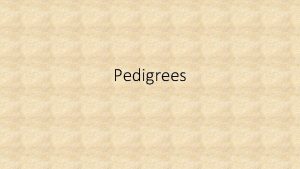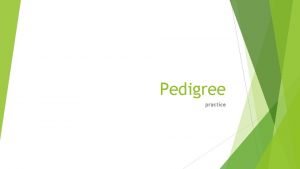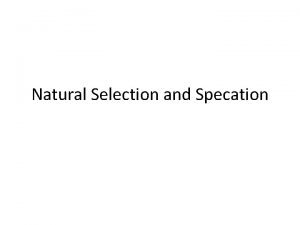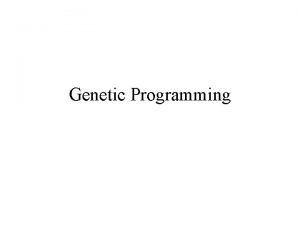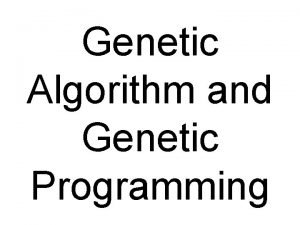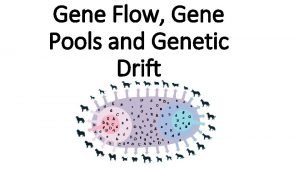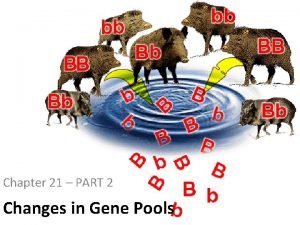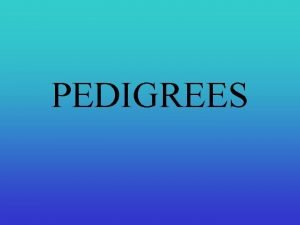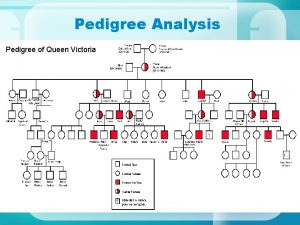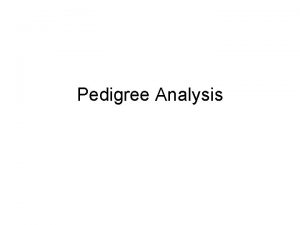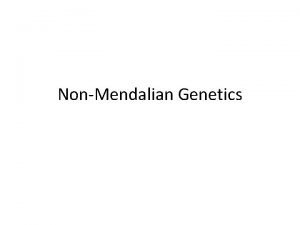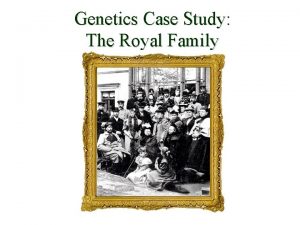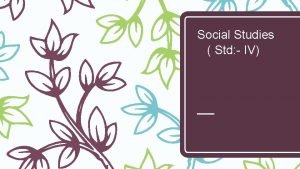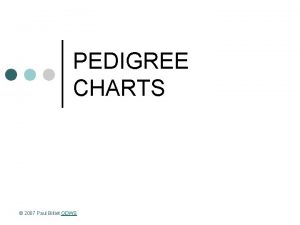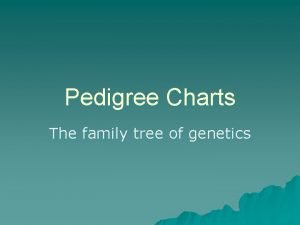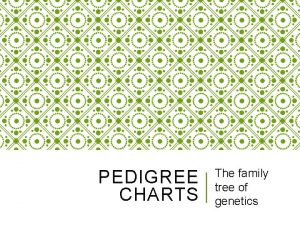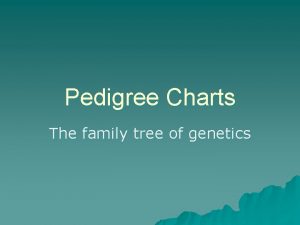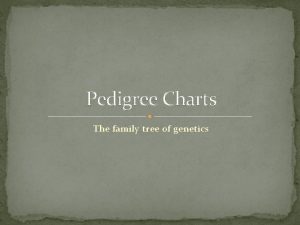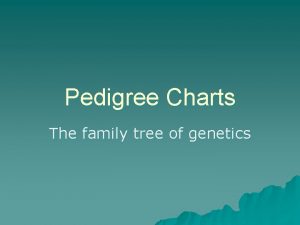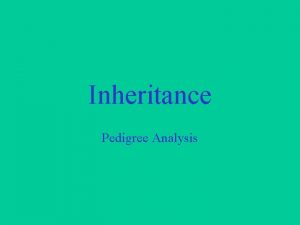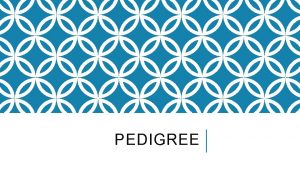PEDIGREE CHARTS A family history of a genetic














- Slides: 14

PEDIGREE CHARTS A family history of a genetic condition

Quick Review • Genotype = what genes someone has • Genes are usually represented by a letter, a capital letter for the dominant trait, a small case for the recessive. • Example: Tongue Rolling is dominant, so we use R to represent the tongue rolling • Inablility to roll your tongue is recessive so we use r to represent the non-rolling gene • For every trait, you get a gene from each parent

Genotypes and Phenotypes • Mom and Dad are Rr-that is their genotype, they can also be described as heterozygous-they have 1 of each gene • What is their PHENOTYPE? (Roller or non-roller? ) • The youngest son has a genotype of rr-he is Homozygous recessive-2 copies of the recessive gene • His phenotype?

What is a pedigree chart? • Pedigree charts show a record of the family of an individual • They can be used to study the transmission of a hereditary condition • They are particularly useful when there are large families and a good family record over several generations.

Studying human genetics • Pedigree charts offer an ethical way of studying human genetics • Today genetic engineering has new tools to offer to doctors studying genetic diseases • A genetic counsellor will still use pedigree charts to help determine • the distribution of a disease in an affected family

Symbols used in pedigree charts Normal male Affected male A marriage with five children, two daughters and three sons. The next to eldest son is affected by the condition. Normal female Affected female Marriage Eldest child Youngest child

Symbols • Shaded individuals have the trait you’re studying • Boys = squares • Girls = circles

• Married-connected at side • Siblings-connected at TOP not at the side • Oldest child-to the left • Question-if shaded individuals in this pedigree have blue eyes, what is the GENOTYPE of the parents?

Other Symbols • Divorced, separated • Deceased • Identical twins • Fraternal twins

Organising the pedigree chart • A pedigree chart of a family showing 20 individuals

Organising the pedigree chart – Generations are identified by Roman numerals I II IV

Organising the pedigree chart • Individuals in each generation are identified by Arabic numerals numbered from the left • Therefore the affected individuals are II 3, IV 2 and IV 3 I 1 2 3 4 5 6 7 II IV

What’s Going On? Shaded = Blue Eyes • 1 and 2 split after having 4, 2 then had kids with 3 and split with her too after 5 -9 were born • Genotypes of 1, 4, 7? • Genotypes of 2 & 3? • Genotypes of 5, 6, 8, 9, 10, 11, 12?

Time to Practice…
 Pedigree biology
Pedigree biology Pedigree only males affected
Pedigree only males affected The pedigree below tracks duchenne muscular dystrophy
The pedigree below tracks duchenne muscular dystrophy What is the difference between genetic drift and gene flow
What is the difference between genetic drift and gene flow Genetic programming vs genetic algorithm
Genetic programming vs genetic algorithm Genetic programming vs genetic algorithm
Genetic programming vs genetic algorithm What is the difference between genetic drift and gene flow
What is the difference between genetic drift and gene flow What is the difference between genetic drift and gene flow
What is the difference between genetic drift and gene flow Hearsay meaning law
Hearsay meaning law Pedigree analysis worksheet addams family
Pedigree analysis worksheet addams family Pedigree chart of queen victoria
Pedigree chart of queen victoria Maternal effect
Maternal effect Flipnob family pedigree answer key
Flipnob family pedigree answer key Rasputin family tree
Rasputin family tree Conclusion on topic family
Conclusion on topic family
